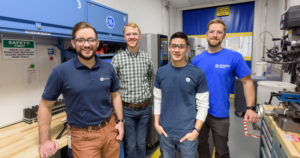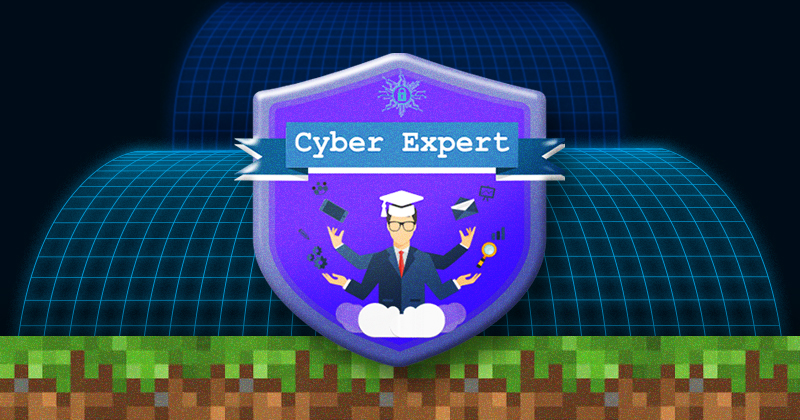University of Delaware students help middle schoolers learn computer engineering
About 60 local middle schoolers are putting their socially distant time to good use, thanks to a virtual coding and cybersecurity summer camp hosted by computer engineering experts at the University of Delaware.
The Summer of Cyber is a free cyber themed summer camp for middle school students with or without previous coding experience. The first session is running from June 15 to July 9, and the second session runs from July 20 to August 13.
About 15 University of Delaware students are building the content under guidance from Andy Novocin, associate professor of electrical and computer engineering at the University of Delaware, and Mel Jurist, academic program manager for UD’s K-12 Engineering Outreach Program. This effort is a collaboration of UD’s K-12 Engineering Outreach Program, Cybersecurity Scholars, Vertically Integrated Projects, CS+ Social Good registered student organization, and the student startup CyberSecLabs.
The program runs four days per week for two four-week sessions. In week one, students make their own websites and a series of games while learning to code. In week two, they learn cybersecurity principles including password security, steganography (hiding a secret message within another message), how to run a computer from the terminal, web app security, remote code execution, social engineering and the importance and opportunities of cybersecurity careers.
In week three, kids learn cryptography—writing and solving codes for secure communication. In week 4, they study networks and use Minecraft to learn how the Internet is built. Along the way, campers earn fun badges such as “password cracker” and “cyber expert.”
“We’ve had a principle of providing real and meaningful outcomes that empower the students to create and be useful even from the start, as opposed to drilling basics for a long time before beginning to approach how things are done in reality,” said Novocin.
Off the success the camp, the UD students involved are exploring opportunities to train K-12 teachers and have set up ways to get the content into classrooms via virtual field trips, self-guided study, and workshops.
After all, when more kids learn important cybersecurity skills, we all benefit.
“The need for cybersecurity specialists is great but if kids don’t know about a field, how can they aspire to it?” said Jurist.
In mid-July, Jurist will offer Solar Academy, a free three-week virtual camp that teaches kids about solar energy with hands-on projects, and a one-day session on Ocean Currents and Pollution. The deadline to sign up is July 15, and all materials will be sent to participants. Contact mjurist@udel.edu for more information. First come, first served.



